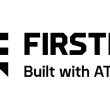FCC grants rebanding extensions
As expected, the FCC has granted extensions to most licensees operating 800 MHz public-safety systems that have not yet completed the rebanding process, although entities that lack an agreement with Sprint will be required to submit reports explaining the delay or risk potentially significant financial repercussions.
In an order released last week, non-border public-safety licensees that have not signed a rebanding deal with Sprint — and about 55 of the 900 non-border public-safety licensees fall into this category, according to the carrier — must complete a rebanding agreement or file a report by late February or early March. Those entities failing to do so are subject to “further action by the Commission, including consideration of whether the licensee’s continued rebanding costs should be deemed not recoverable from Sprint.”
However, relatively few public-safety licensees should be in jeopardy of such actions. In its monthly report to the FCC today, Sprint noted “steady progress” in the rebanding of 800 MHz public-safety systems and that “most, but not all” public-safety licensees without a rebanding agreement have submitted cost estimates needed to negotiate a deal. All public-safety licensees that have not submitted cost estimates are in the mediation process supervised by the Transition Administrator, according to Sprint’s report.
Public-safety agencies located near the Canadian or Mexican border are not subject to last week’s action. Agencies along the U.S.–Mexico border are still awaiting an agreement between the two countries to begin the rebanding process.

















